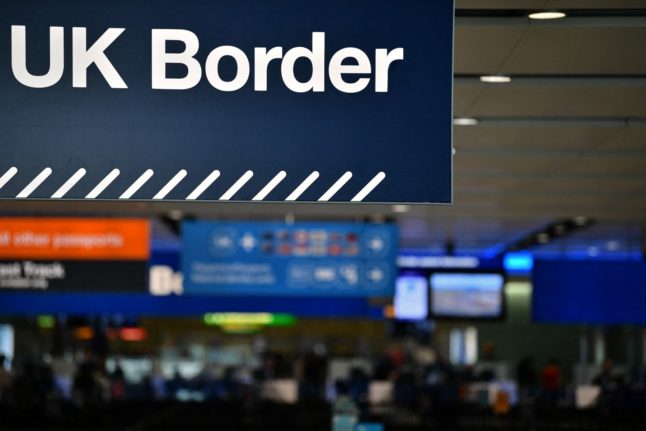Le Maire said that according to government estimates Brexit would only snip 0.1 percent off GDP in France in 2021 and French trade to Britain “was not much as far France's total global trade volume is concerned”.
He criticised the concept of Brexit, borrowing a phrase from the last novel by British spy novelist John Le Carré, whose death was announced on Sunday.
“Brexit, to quote a very simple phrase of John Le Carré – to whom I take this opportunity to pay tribute – is 'lunacy',” Le Maire told France Info radio.
“I regret that my British friends have to pay the price, because they are paying the price for populism, they are paying the price for lies,” he said.
On Monday EU chief Ursula von der Leyen expressed satisfaction over talks with Britain to agree a post-Brexit trade pact, saying there was progress as negotiators entered the “last mile”.
“First of all there is movement. That is good… We are talking about a new beginning with old friends,” she told a conference organised by the Organisation for Economic Cooperation and Development (OECD).
“We are on the very last mile to go. But it is an essential one. We want a level playing field, not only at the start, but also over time,” she added.
“This is the architecture we are building. We are fine about the architecture itself, but the details in it – do they really fit? These are crucial points because it is a matter of fairness, fair competition and we want to ensure that.”
Her comments came as EU and British officials were set to return to the negotiating table on Monday after von der Leyen and British Prime Minister Boris Johnson agreed to abandon a supposed make-or-break weekend deadline.



 Please whitelist us to continue reading.
Please whitelist us to continue reading.
Let’s be serious here, Bruno. The EU is losing a dynamic economy of 65 million people. Anybody who thinks the Brits are the only ones paying a price for Brexit is either disingenuous or naive.
We UK cits are indeed the losers, whether there’s a deal or not. I had booked the ferry for tomorrow but cancelled today due to not wanting to contribute to a wave of Covid after Christmas. That means I won’t be allowed in as from Jan 1st until/unless infection rates fall in UK. In turn that means I have to get a new passport ahead of time thanks to Brexit & the six month rule.
I don’t want to say “we British” because our government is indescribably appalling and from now on, although I hold a UK passport, I shall describe myself as my genes indicate, that I’m mainly Irish. Very sadly I’m not entitled to an Irish passport; just a generation too late.
Thanks, The Local, for all your info. I’ve already apologised today to one French person for this shambles & asked her to pass it on to all her colleagues.
I’m afraid Monsieur Le Maire that we are paying the price for one man’s naked and 100% selfish ambition. David Cameron’s referendum was lunacy enough, but BJ’s “toss a choice” in the air & consequently choose, for the sake of his career, to campaign to leave has hidden the truth with lies, bitterly split the country & shamed us internationally. Please apologise to every French friend from me.
@ Declan I totally agree with you and couldn’t have put it better myself. I’m not British, but I’m very sorry that the UK have Brexited. The EU is certainly going to miss the dynamism of the Brits, that’s for sure.
But the UK is going to be so much better off in the end, without the terrible bureaucracy of the EU. Bojo must leave though; he’s not good for Britain.
Bruno le Maire is being arrogant, a big show off, but let’s wait and see who really wins in the end. It won’t be the EU.
Britain isn’t 65 million dynamic people though, maybe a few million at best. Most of the rest are sheep who’ll believe any old tosh as long as it’s about cutting immigration, perceived sovereignty, royalty or Spitfires.
Britain has an economy that doesn’t grow enough food to feed itself, make cars or most things modern life needs. They are a nation of consumers because they have to be, and the EU produces many of the things they want to buy. If it costs more, they’ll moan, but buy them anyway. Conversely, bar a few luxuries, Britain produces little we want.
EU will be hit, of course it will, but the key difference is that the EU is virtually self-sufficent in the necessities of modern life. Britain, unfortunately is not.
Sorry Declan and Daniela but I’m with Bruno and Pam here – Britain will definitely be the biggest loser by far…. all due to political egos.